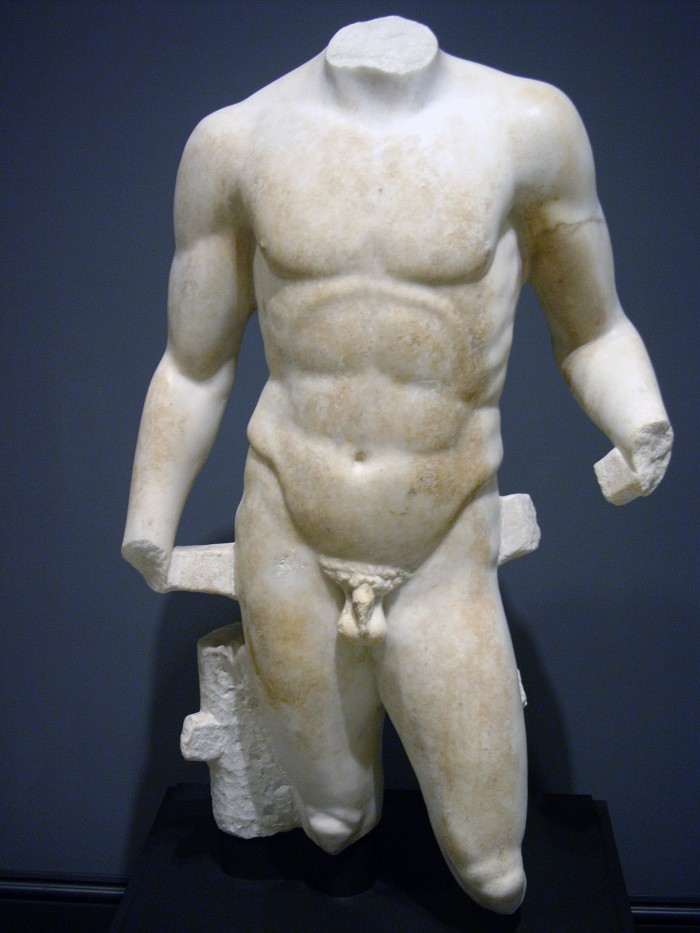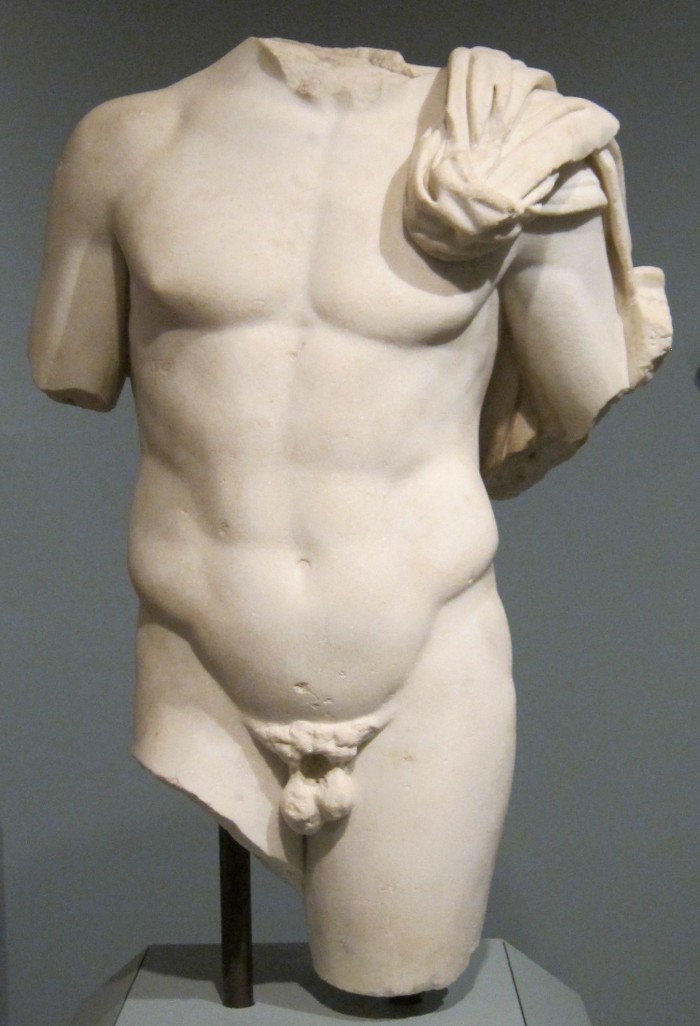The Phallus in the Age of Mechanical Reproduction
Keywords: capitalism, felix bernstein, Interview, kyoo lee, phallus
And How to File the Phallacy of the “Privileged” Avant-guard(e)

One reason to mechanically reproduce is to make the image bigger or smaller: to blow it up or scale it down. To re-share is to strengthen but also to take away from the alleged presence of authenticity, shrinking and killing off all referents—and boy, don’t they return? So the image grows bigger but its referent grows smaller—as such, the white male artist, for instance, has a phallus that has grown ginormous from digital reproduction, but is also increasingly vacuous and virtual and viral, which in a sense is what the phallus is or might have been in the first place: as the “privileged signifier” of the symbolic, it is powerful but empty insofar as it remains and functions—as the withdrawing X thus withheld. Note its zero-degree simplexity, a hollow echo chamber that is simple and complex at once narratively, historically, theoretically, momentarily … all. We all need to handle “it” with care, perhaps not unlike a good forensic scientist or psychologist, or I should say, reader, philosopher even, whose job is in a sense to “hold” it … The referent/existent/penis is all but gone—save the phallus which (note this again) is not the penis—and it has finally crawled back into its shell: stage fright on a frightening stage of information overload (nothing new) and digitotalized overdrive (which needs to be closely examined through some careful “epochal” reading, a skeptical bracketing and critical suspending).
What follows is a series of questions and answers thinking through the phallus to file today, in the age of mechanical reproduction, and maybe yesterday too, piles and miles of “it,” as it tours on the bandwagon of the boy band’s instant, global circulation, which generates its socio-political ontological values even or especially in fact as “it” gesturally retreats into its own phallic port of renunciation (a sort of set-theoretical Grand Central where all the trains would depart/arrive, at once).
FB: A boy in a band quit the band and allegedly walked away from fame (Zayn Malik; One Direction). There was uproar. Betrayed teen fans massively self-harmed (#CutForZayne). But does the fan long to leave with the boy? Or to bring him back?
KL: Malik’s departure can be read as a timed speech act and it was to have been well-timed in order to signify, “effect” anything, to affect anyone. Within this newly minted zone of differential identifications (derivative dis-identifications), now reenergized with viral simultaneity, this sort of affective mass confusion resets a platform where capitalism continues to generate its own valuable, tabloid images. This sort of “boy band” drama seems to necessitate that sort of groupie reaction as part of the composition; there comes a “girl group” then, as they say in the idioms of K-pop. Walking away is a boy’s act, walking along is what girls do; all part of the script in action, a reality TV called real. One flees, the other follows, both freely—how exciting, how addictive—and the two-in-one forms an obscure, meta-sort-of-body, computable only by computers, stats, data sets. This auto-generative conflation of creation and consumption in this digital tennis court is procedurally gendered, and schematically generalized, into the very structure of social media that has come to mediate the social itself almost entirely.
Take Lady Gaga, a genie in and out of bottle, whose group-individuated “little monstrosity” curated through her matronly strategy of customer care (see how she keeps her fans flattered and plastered with her personalized validation of their adolescent transgressions and transformations including sexualized and gendered self-experimentations) seems almost natural, structurally seamless. She reaches out to you instantly, directly, wirelessly, and you to her, as she means it and means well.
I still remember that Microsoft slogan (1998) vividly, with that butterfly logo fluttering about promisingly and, yes, threateningly. And so where are we now, if not always already elsewhere by being pushed in or out? Recall that “pressure,” 24/7. Or rather: now, where do you want to be? Are you in or out, or in and out? Where is your desire, as a Zen master might still ask, when Everything is Awesome (2014) anyway? – So why
move at all? Walking away or following around or staying in or out, whatever it is one is doing or not doing or undoing or redoing, what matters seems to boil down to the question of … well, I’m not sure, still searching … for what, exactly? (ask Siri).
FB: Are Malik’s fans just angry that he showed the freedom to renounce being a celebrity – a pressure we all increasingly face?
KL: Perhaps the pressure is the plot, since “the medium is the message,” and now with Instagram, time seems to have almost become a matter of timing. We don’t “have” time or maybe never did, but anyway we now ride on it, so to speak. Looking back on the 80’s and 90’s metaphor of the “internet surfer” that began to replace the couch potato (the PBS “viewers like you”) one will immediately see a clear, paradigmatic shift in senses of spacetime to fluidity and mobility, the post-Fordist model of organizing and inhabiting the fundamental logistical conditions of being, living on. Just look at the stock market economy, where no one really “has” money but carries, circulates and manipulates values, and how profoundly this techno-financial capitalism alters and alerts our sense of being in the world. Now then, time is money in a whole new sense: “liquid,” not solid or static, as Zygmunt Bauman observes.
Likewise, in the world of instagrammatology, time itself, unfolding through multi-planed chronological points in the 24/7 viral loop, emerges as grammatological pressure points, points of performative inscription, as one writes oneself into and out of a scene at once, constantly.

FB: Napster-Liberals seem to follow the precedent set by Alexander Galloway that the freedom of expression is meaningless but the freedom of use is crucial.“Today there are more and more threats to programming in everyday life: digital rights management agreements prohibit specific uses of one’s purchased property; sampling has become a criminal act. Hence future politics will turn on freedoms of use, not on the antiquated and gutted freedom of expression.”— Alexander Galloway Is there a limit, though, to fair use? Who determines these limits? Moreover, can use, using, and usury, ever be fair?
KL: Digiboy freedom and “Napster-liberalism,” as you put it, invites a closer look, again, into the gendered genesis of “digit-all” freedom “managed” and unmanaged as such (cf., Another slogan from the 1990s: “Samsung DIGITall: everyone’s invited”). The issue of who/what gets used and how in the material dialectics of re/sourcing is not an ethico-political concern of secondary order but is part of the question of what it means to use anything at all, especially when the “thing” appears intangible or virtual, seemingly not having a good old Cartesian “extension,” the body. Recall that massive, paradigmatic turn from industrial to technological, loosely in parallel to the epochal shift from modern to postmodern, solid to liquid, spatial to zonal, work to network.
Take John Locke to John Rawls, two bookends of Anglo-American liberalism. Their core ideas unfold on the leveled premises of modern property relations between political subjects, practically precluding this question of structural or genealogical inequality, this inherited privilege/deprivation stemming from the deeply rooted historical practice of property-ownership, the kind that interested Jean-Jacques Rousseau, for instance, the Continental revolutionary. Again, those Johns try to “manage,” to skirt around, the issue rather than wrestle with its foundational conundrum, its aporetic nature. At least Rousseau tried to look deeper into the “origin” of the issues:
MAN (L’homme) is born free; and everywhere he is in chains. One thinks himself
the master of others, and still remains a greater slave than they. How did this
change come about? I do not know. What can make it legitimate? That question I
think I can answer.
Freedom from transactional “use values”? How come we, the moderns, of we-are-the world, live in this cyclical paradox of chained freedom, of this double usage, being a user also used by another? Jean-Jacques would say, “I do not know (Je l’ignore),” the ambiguous simplexity of which I still find fascinating: “I remain ignorant—to the point of ignoring it.”
To ignore is an act, whereas to be ignorant is a state, and the two become inseparable in the sustained production and, again, “management,” of non-knowledge, not knowing. In the epistemological orders of ignorance, Je l’ignore occupies a privileged position to the extent that it is safely bracketed, handled with contrived ignorance. Life goes on, without our knowledge, life gets managed, and more significantly, mismanaged, regardless. It seems hardly clear where the “fairness” of fair use might lie, especially when being itself almost implies being in use or used, part of the chain of the material legacy of history.
FB: Badiou to Agamben, many contemporary philosophers have valorized acts of renunciation, disappearance, and subtraction, as an antidote to the hypermediated omnipresence of capitalism. Doesn’t disappearance always mark itself as a redoubled authorial presence? The event that we are to pay attention to is the event that retreats from view: is this not entirely traditional/conservative?
KL: I remember, already about a decade ago when I was a sort of toddler professor starting to “assist” and be assisted as an “Assistant Professor,” a fellow professional philosopher, much senior to me both in terms of rank and age, in fact already full, quite full, “bitching” about his convoluted relationship to what he calls “philosophy boys,” which then struck me as an interesting characterization, although there was nothing really novel about that formulation itself. Boys, not philosophers, as in the old-boy network, we all know this or think we do: to group “philosophy boys” as such is a curiously simple, self-referential way to dephallicize or girlify or defamiliarize philosophy as an academic institution, a disciplinary field with “vested interests” among its stakeholders; to draw this image from the second set of your questions, what some of us are doing in contemporary theoretical and philosophical scene, from in-outside it, is, yes, to “queer” it, to convolute it. Judith Butler is a case in point, whose mode of exposition is inseparable from what she is tabling and advancing.

FB: Recently, Kenneth Goldsmith, the conceptual poet who is against copyright and runs the pirate art site Ubuweb, said that he would not make a poetry reading he gave available: “Everything is circulation and fair game, except for MY penis.” But do we have a penis anymore? Shouldn’t we just hand over our Dick Pic to Facebook and the government right now?
KL: To begin with, also for the record, I do not have a penis—but of course that does not mean we do not have a penis or penises. And where is “our” penis, or the phallus? “Do we have a penis anymore?” You ask. Or did we? Where? Again, what we have and see here, I would call, is phallacy, a fallacy spelt fallaciously: something of a phallic fallacy spelt perhaps better, given the compressed complicity between the two terms, the phallus and fallacy, both phantastic in the more archaic, psychoanalytic sense.
No one is error-free, but some become erroneous in particular ways, phallically habitually fallacious, for instance. Also in that regard, it seems extremely important then for any cultural workers to absorb the intellectual and spiritual canon that is also the archive of inherited, mutual blindness. One important point of such textual exercise, apart from feeding one’s own scholastic habits, would be to become aware of when and where shared knowledge ends and how mutual unknowing can unlock a possible, better future that one might call the archive of an afterlife.
FB: Are you implying that we are all as deliriously confused and daffy as the most spoiled of men?
KL: I remain blind just like Justicia, the blindfolded goddess of justice, the allegory of double blindness that must do justice blindly to the particular and does remain blind to its own particularity, namely, pre-judice. I am blind to the particular because I am part of it; apart from it, I am also a part of it. The knowing subject that is also unknowing, for the reasons stated above, becomes a fallacious object cum subject. This luminous ball of stuff one sees in and as enlightenment reason including its shadows, moves right in there, occupying just that gap between blinds obviously and obliviously: I wouldn’t know how blind I am, in terms of both degree and modes, except that I am blind and should remain so to a certain extent.
One is justly blind and just blind at the same time, and that is the issue, the very structure of cascading blindness that everyone, every mortal being inherits and embodies, no exception. In other words, whether you have a penis or not, whether it is mine or hers, does not matter that much insofar as a phallacy, a performative manifestation of epistemic injustice solidified into a “thing” that thinks freely blindly, just persists, which “does not stop today” and has indeed reappeared tomorrow.
The political cost as well as benefit of this philosophic blind-spot, however mutual and shared, cannot be by simply ignored or rationalized, i.e., pre-emptively or retroactively justified, for one also needs to—or simply must—know who then pays for and suffers from the epistemology of dominoed ignorance.
FB: So, then whose delusions are on trial when everyone is in the courtroom of conversation? Whose exceptionalism are we talking about or not?
KL: Sometimes I would forget to count myself in when counting all—why? Is it not because I put myself quite literally outside (strategically or unconsciously)?
FB: But when do you then write yourself back in, into the (w)hole?
KL: Truly, a tricky question but it is something I believe we could—or should—also take as a challenge shared in good faith—a leap of faith, so to speak. This might just be an ideal or idle meta-philosophical speculation that naïvely mistakes airbag for a cushion, but while on this journey, whatever it is or is not, I would rather be vigilant towards this binarized trap of phallic/counter-phallic contentions, a somewhat rigid process of ideological objectification that ends up re-phallicizing the minoritized other self-(mis/dis-)identified as such in a game that might in fact keep reproducing its own blindspot. IMHO, rather than this pen(is) here or that pen(is) there, i.e., “us vs. them,” what needs to be analyzed further, undone and re-envisaged would be the very reciprocity, the structural micro-macro complicity, between the two. Such an explorative move that also meta-categorically embraces the “double blindness” of sobject (subject & object) should be more than a rhetorical ploy, not just some band-aiding, diplomatic gesture. What continues to interest me is the political economy and ontology of phallaciously-centered and decentered identity-ma®king that often takes the form of arbitrary (pro)filing and corrective naming that often takes place in the name of threatened security and violated liberty, mini- to mega-. The super-ego, the super-man, the super-market, the super-state …
In short: what I would question with, rather than simply against, those “philosophy boys” or old boys, wherever they are now or appear to be, is the sovereignized and minoritized fantasy of freedom from error—or terror… mutualized terror.

FB: But aren’t some errors more egregious than others, namely the (t)errors enacted by white privilege?
KL: The gesture of conceptual reductionism or maxi-minimalism is, yes, something of a phallic trap that comes padded, which in part explains its operational smoothness, a certain “white sheen.” In this connection, the theoretical rigor, formalist consistency and affectless neatness of conceptualism also comes from the actual, ambitious imperative here, namely that what matters is to read and manage what is already there rather than to write and produce something new, some original masterpieces by a messy, “creative” genius.
Especially given Goldsmith’s situation at Brown, where the (unruly, clueless) child (boy-gendered) reader-player got his finger caught in the trap he himself set up, we are actually forced to read it again and in contexts, including and especially the whole frame and act of framing; indeed, handle with care, one must.
FB: Can our cross-examination, our head hunting for the author, do anything but redouble our obsession and thirst for the author himself, to make him culpable? Whose phallus is whose?
KL:This brings up a question in poethics and aesthethics more broadly: how does one handle matter with care? Whether it is a human subject or a piece of paper, which, as seen above, might not differ much after all? Perhaps one should be, and act, like a Butoh dancer literalizing the body in motion into the micro-gradual exposition of its own choreographical language. Perhaps such critical patience or disciplined self-awareness, something more or other than stylized tediousness or ironized automaticity, is what is relatively lacking, or weak, in Goldsmith’s poetics at this point.
I’m envisioning a theory of conceptual reading, the moments of slow, attentive, elaborate reading built right into the very fabric of textual reproduction and performative repetition at once; again, attentive, not controlled or aggressive, but attentive, peripherally astute. I do not mean Goldsmith should somehow girlify his line, not that that would be any problem for any self-respecting and secure poet, male or female. But more to the point, if his usual “massaging” of the message from the body of a dead man, more specifically, a tragically murdered black teenager, actualized through a phallacious reciting of the autopsy, is quite obviously a conceptual misstep, the error seems symptomatic of its conceptual impo®tence, to the extent that the blind masseur remains really blind, oblivious in fact–his touch lost somewhere along the way.
If the poet can only practically scan the contour of the body but cannot really engage it, dead or alive, what results is a progressive hoarding, not trailblazing into the invisible corners of time but rather avant-guarding its own crumbling monumentality.
FB: Even when Goldsmith attempts with complete transparency to list everything he did in a certain day, Fidget, what is absent is always lack. Because the straight white male has so much lack—so much “baggage,” so much ignorance qua symptoms. There is a kind of pain and trauma from causing pain and trauma. Moreover, straight white men can be our brothers, fathers, or husbands. Shall we torch them anyway?
KL: “The white man’s burden” today might be the white man, also in the sense that it has always been that, as we also learn from the Buddhist idea of karma; we carry our own weight, moral or intellectual, psychical or spiritual, till and after we die. In any case, I think, as we also learn from Logic 101, the straight white man is also a man, a man who evolves historically or theoretically or both, as we hope… or do we?
Kyoo Lee is the author of READING DESCARTES OTHERWISE: BLIND, MAD, DREAMY, AND BAD (2012) and Professor of Philosophy at the City University of New York. Trained in European Philosophy & Literary Theory, she writes widely in the intersecting fields of the Arts & the Humanities, and her current projects include three books on DAODEJING (Laozi), THE PASSIONS OF THE SOUL (Descartes), and THE SECOND SEX (de Beauvoir).
Felix Bernstein‘s critical and uncritical writings have appeared in Bomb, the Believer, Poetry Magazine, Hyperallergic, and Boston Review. His book of essays, Notes on Post-Conceptual Poetry, is out from Insert Blanc Press and his book of poems, Burn Book, is forthcoming from Nightboat. His solo performance Adonis or Bieber Bathos Elegy will premiere at the Whitney in the fall.